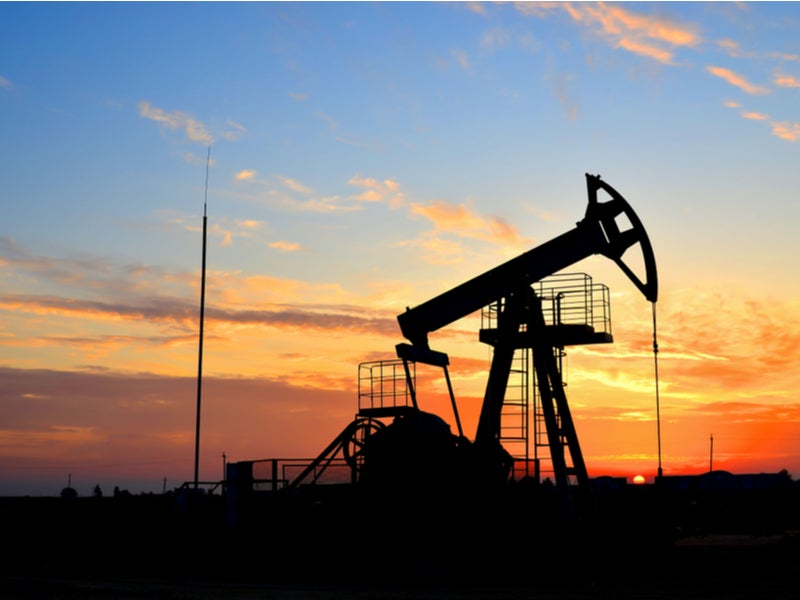
Oil and Gas lead as Offshore Technology lists the top five terms tweeted on exploration in July 2020, based on data from GlobalData’s Influencer Platform.
1. Oil & Gas – 191 mentions
Fossil fuel companies facing bankruptcy, incurring heavy losses due to fall in oil and gas prices, and seeking Covid-19 aid were some of the popularly discussed topics in July. According to an article shared by Svein T Veitdal, a climate consultant, more than 5,600 fossil fuel companies took a minimum of $3bn as part of Covid-19 aid from the US federal government. These companies included oil and gas drillers, refineries, coal mine operators, pipeline companies, as well as organisation providing services to the industry, the article noted.

Discover B2B Marketing That Performs
Combine business intelligence and editorial excellence to reach engaged professionals across 36 leading media platforms.
Ed Crooks, an energy editor, also discussed how the US oil and gas industry was eventually recovering after production had been restarted post the shut-in. However, reports did not suggest any rise in the total US crude oil production yet, while employment has not completely recovered from the 2014-16 oil price crash.
In other news, Kees van der Leun, a top energy influencer and strategist, shared an article on Chapter 11 bankruptcy protection filed by California Resources Corp. (CRC), which is the largest oil and gas production company in California. CRC sought relief from $5bn in debt and other interests, the article highlighted.
US: Over 5,600 fossil fuel companies have taken at least $3bn in US Covid-19 aid https://t.co/x9se2z60eQ
Businesses include oil and gas drillers and coal mine operators, an analysis by Documented and the Guardian finds pic.twitter.com/5A5K8I1JYN— Svein T veitdal (@tveitdal) July 8, 2020
 GlobalData Strategic Intelligence
GlobalData Strategic IntelligenceUS Tariffs are shifting - will you react or anticipate?
Don’t let policy changes catch you off guard. Stay proactive with real-time data and expert analysis.
By GlobalData
2. Oil – 126 mentions
Scaling back of oil exploration, major oil companies focusing on net zero limits, and the future of exploration in a low carbon world, were popularly discussed in July 2020. According to an article shared by Anjli Raval, a senior energy correspondent, the oil industry was scaling back exploration for new oil fields. The oil industry has come under extreme scrutiny with rising costs and demand to act on climate change, the article noted.
Meanwhile, the world’s top oil giants including Exxon Mobil Corporation and Saudi Aramco have set their carbon reduction target for the first time, according to an article shared by Ron Bousson, an energy reporter. The declaration is particularly important for Exxon, the largest oil producer in the US, as it has been resisting investor pressure to meet climate change goals. The company is yet to report its carbon emissions for 2019, the article detailed.
In other news, Andrew Latham, a geologist, discussed the future of oil and gas companies and exploration in a low cost, carbon free world.
BIG READ >>> The last frontier: oil industry scales back exploration #oott
https://t.co/PUfcK6gXsr— Anjli Raval (@AnjliRaval) July 22, 2020
3. Production – 39 mentions
Excess production over Organization of the Petroleum Exporting Countries (OPEC) + quotas in May and June was widely discussed during the month. According to an article shared by Herman Wang, a senior writer and correspondent, the Joint OPEC-Non-OPEC Ministerial Monitoring Committee (JMMC) data revealed that excess production over OPEC+ quotas included Iraq, Nigeria, Angola, Kazakhstan, Russia, Gabon, Congo, and South Sudan in the months of May and June.
In other news, Lisa Viscidi, the director of the Energy, Climate Change & Extractive Industries Program, shared an article on Pemex, Mexico’s state-owned petroleum company, having reduced losses during the second quarter amid a fall in crude prices during the coronavirus pandemic. While production of crude oil remained flat, prices for Mexico’s crude export mix was 60% less than for the same period in 2019, the article noted.
According to JMMC data, excess production over #OPEC+ quotas in May/June include: #OOTT
🛢️348,000 b/d by Iraq
🛢️136,000 b/d by Nigeria
🛢️72,000 b/d by Angola
🛢️89,000 b/d by Kazakhstan
🛢️55,000 b/d by Russia
🛢️53,000 b/d by Gabon
🛢️32,000 b/d by Congo
🛢️25,000 b/d by South Sudan— Herman Wang (@HermsTheWord) July 15, 2020
4. Offshore Wind – 31 mentions
Innovations, offshore wind financings, and investments was popularly discussed in July. According to an article shared by Kees van der Leun, a top energy influencer and strategist, New York State invited bids for 2.5 GW of offshore wind and 1.5 GW of onshore renewable generation capacity.
In other news, Elaine Maslin, an offshore engineering and renewable writer, shared an article on a Swedish multinational power company, Vattenfall, revealing offshore wind plans, off the coast of Sweden. Called Kattegatt Syd, the wind farm is at its early stages of development and located 25km from the coast of Falkenberg.
New York state invites bids for 2.5 GW of offshore wind and 1.5 GW of onshore renewable generation capacity. https://t.co/BqZJo6qW2L
— Kees van der Leun (@Sustainable2050) July 21, 2020
5. Covid-19 – 29 mentions
Covid-19 aid for fuel companies, and blanket testing to avoid Covid-19 outbreaks in the offshore industry was popularly discussed during the month. According to an article shared by Anas Alhajji, an energy markets expert, the U.S. Energy Information Administration forecasted a 2.3 million barrels per day difference between expected US crude oil production and the actual in June, before the Covid-19 crisis in December 2019.
In other news, Svein T Veitdal shared an article on what lay ahead of the global oil and gas crash. The article noted that the oil and gas sector was not the only industry suffering the biggest economic slump, and that the coronavirus pandemic alone could not be blamed for it. The industry earlier did not have to consider climate risks, stranded assets, and peak demand, and more. However, today, they are expected to build strategies around these ideas.
https://twitter.com/anasalhajji/status/1278332792972115969




